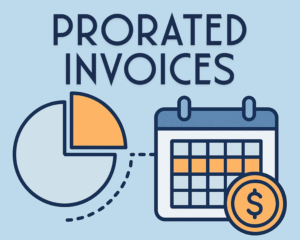 Understanding Prorated Subscription Charges
June 25, 2025
Office Puzzle bills per active user monthly. Prorated charges apply when adding/removing users mid-month, pay only for days active on…
Understanding Prorated Subscription Charges
June 25, 2025
Office Puzzle bills per active user monthly. Prorated charges apply when adding/removing users mid-month, pay only for days active on…
 Florida SMMC Billing Updates: Streamlining BA Services for 2025
January 20, 2025
SMMC 2025 transition! Payer details, billing tips, and key steps like choosing a clearinghouse, verifying enrollments, and testing claims. Office…
Florida SMMC Billing Updates: Streamlining BA Services for 2025
January 20, 2025
SMMC 2025 transition! Payer details, billing tips, and key steps like choosing a clearinghouse, verifying enrollments, and testing claims. Office…
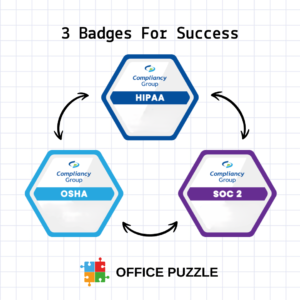 Compliance Trust Badges: Ensuring Data Security & Regulatory Adherence
October 1, 2024
At Office Puzzle, we proudly hold Compliance Trust Badges, showcasing our dedication to HIPAA, OSHA, and SOC 2 compliance for…
Compliance Trust Badges: Ensuring Data Security & Regulatory Adherence
October 1, 2024
At Office Puzzle, we proudly hold Compliance Trust Badges, showcasing our dedication to HIPAA, OSHA, and SOC 2 compliance for…
 Rate Changes for Medicaid in Florida
September 27, 2024
Rate Changes for Medicaid in Florida effective October 1st, 2024.
Rate Changes for Medicaid in Florida
September 27, 2024
Rate Changes for Medicaid in Florida effective October 1st, 2024.
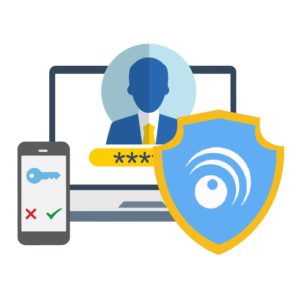 Multi-Factor Authentication (MFA)
February 8, 2024
Multi-Factor Authentication (MFA) is a security mechanism that requires users to provide two or more different authentication factors to verify…
Multi-Factor Authentication (MFA)
February 8, 2024
Multi-Factor Authentication (MFA) is a security mechanism that requires users to provide two or more different authentication factors to verify…
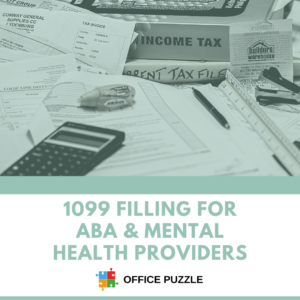 1099 filling for Therapy providers
December 22, 2023
In the world of healthcare & therapy services, agencies must embrace tools enhancing operational efficiency, ensuring compliance with ever-evolving regulations.
1099 filling for Therapy providers
December 22, 2023
In the world of healthcare & therapy services, agencies must embrace tools enhancing operational efficiency, ensuring compliance with ever-evolving regulations.
 Leveraging Data Collection
October 23, 2023
In the realm of healthcare, regardless of the type of therapy, meticulous data collection can make the difference in achieving…
Leveraging Data Collection
October 23, 2023
In the realm of healthcare, regardless of the type of therapy, meticulous data collection can make the difference in achieving…
 The Vital Importance of Mandatory Documentation for Therapy providers
October 9, 2023
Mandatory documentation is not just a regulatory requirement; it's a vital component of running a successful and compliant therapy agency.
The Vital Importance of Mandatory Documentation for Therapy providers
October 9, 2023
Mandatory documentation is not just a regulatory requirement; it's a vital component of running a successful and compliant therapy agency.
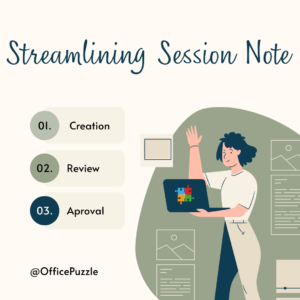 Streamlining Session Note Creation, Review, and Approval
October 3, 2023
For therapy providers, the ability to streamline session note creation, review, and approval processes is a game-changer. Let's explore how…
Streamlining Session Note Creation, Review, and Approval
October 3, 2023
For therapy providers, the ability to streamline session note creation, review, and approval processes is a game-changer. Let's explore how…
 Importance of Swift Billing & Payment Collection for ABA Providers
September 26, 2023
It's crucial for ABA providers to recognize the vital role that swift billing and payment collection play in enhancing cash…
Importance of Swift Billing & Payment Collection for ABA Providers
September 26, 2023
It's crucial for ABA providers to recognize the vital role that swift billing and payment collection play in enhancing cash…
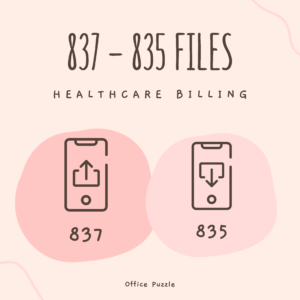 Understanding 835 and 837 files in Billing
September 19, 2023
Two fundamental pieces of the healthcare billing & claims processing are the 835 and 837 files, being a maze of…
Understanding 835 and 837 files in Billing
September 19, 2023
Two fundamental pieces of the healthcare billing & claims processing are the 835 and 837 files, being a maze of…
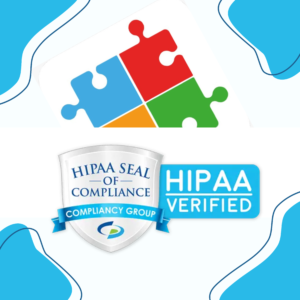 HIPAA Compliance with Compliancy Group
September 13, 2023
Office Puzzle has taken all steps to prove its good faith effort to achieve compliance with the Health Insurance Portability…
HIPAA Compliance with Compliancy Group
September 13, 2023
Office Puzzle has taken all steps to prove its good faith effort to achieve compliance with the Health Insurance Portability…
 Understanding Prorated Subscription Charges
June 25, 2025
Office Puzzle bills per active user monthly. Prorated charges apply when adding/removing users mid-month, pay only for days active on…
Understanding Prorated Subscription Charges
June 25, 2025
Office Puzzle bills per active user monthly. Prorated charges apply when adding/removing users mid-month, pay only for days active on…
 Florida SMMC Billing Updates: Streamlining BA Services for 2025
January 20, 2025
SMMC 2025 transition! Payer details, billing tips, and key steps like choosing a clearinghouse, verifying enrollments, and testing claims. Office…
Florida SMMC Billing Updates: Streamlining BA Services for 2025
January 20, 2025
SMMC 2025 transition! Payer details, billing tips, and key steps like choosing a clearinghouse, verifying enrollments, and testing claims. Office…
 Compliance Trust Badges: Ensuring Data Security & Regulatory Adherence
October 1, 2024
At Office Puzzle, we proudly hold Compliance Trust Badges, showcasing our dedication to HIPAA, OSHA, and SOC 2 compliance for…
Compliance Trust Badges: Ensuring Data Security & Regulatory Adherence
October 1, 2024
At Office Puzzle, we proudly hold Compliance Trust Badges, showcasing our dedication to HIPAA, OSHA, and SOC 2 compliance for…
 Rate Changes for Medicaid in Florida
September 27, 2024
Rate Changes for Medicaid in Florida effective October 1st, 2024.
Rate Changes for Medicaid in Florida
September 27, 2024
Rate Changes for Medicaid in Florida effective October 1st, 2024.
 Multi-Factor Authentication (MFA)
February 8, 2024
Multi-Factor Authentication (MFA) is a security mechanism that requires users to provide two or more different authentication factors to verify…
Multi-Factor Authentication (MFA)
February 8, 2024
Multi-Factor Authentication (MFA) is a security mechanism that requires users to provide two or more different authentication factors to verify…
 1099 filling for Therapy providers
December 22, 2023
In the world of healthcare & therapy services, agencies must embrace tools enhancing operational efficiency, ensuring compliance with ever-evolving regulations.
1099 filling for Therapy providers
December 22, 2023
In the world of healthcare & therapy services, agencies must embrace tools enhancing operational efficiency, ensuring compliance with ever-evolving regulations.
 Leveraging Data Collection
October 23, 2023
In the realm of healthcare, regardless of the type of therapy, meticulous data collection can make the difference in achieving…
Leveraging Data Collection
October 23, 2023
In the realm of healthcare, regardless of the type of therapy, meticulous data collection can make the difference in achieving…
 The Vital Importance of Mandatory Documentation for Therapy providers
October 9, 2023
Mandatory documentation is not just a regulatory requirement; it's a vital component of running a successful and compliant therapy agency.
The Vital Importance of Mandatory Documentation for Therapy providers
October 9, 2023
Mandatory documentation is not just a regulatory requirement; it's a vital component of running a successful and compliant therapy agency.
 Streamlining Session Note Creation, Review, and Approval
October 3, 2023
For therapy providers, the ability to streamline session note creation, review, and approval processes is a game-changer. Let's explore how…
Streamlining Session Note Creation, Review, and Approval
October 3, 2023
For therapy providers, the ability to streamline session note creation, review, and approval processes is a game-changer. Let's explore how…
 Importance of Swift Billing & Payment Collection for ABA Providers
September 26, 2023
It's crucial for ABA providers to recognize the vital role that swift billing and payment collection play in enhancing cash…
Importance of Swift Billing & Payment Collection for ABA Providers
September 26, 2023
It's crucial for ABA providers to recognize the vital role that swift billing and payment collection play in enhancing cash…
 Understanding 835 and 837 files in Billing
September 19, 2023
Two fundamental pieces of the healthcare billing & claims processing are the 835 and 837 files, being a maze of…
Understanding 835 and 837 files in Billing
September 19, 2023
Two fundamental pieces of the healthcare billing & claims processing are the 835 and 837 files, being a maze of…
 HIPAA Compliance with Compliancy Group
September 13, 2023
Office Puzzle has taken all steps to prove its good faith effort to achieve compliance with the Health Insurance Portability…
HIPAA Compliance with Compliancy Group
September 13, 2023
Office Puzzle has taken all steps to prove its good faith effort to achieve compliance with the Health Insurance Portability…